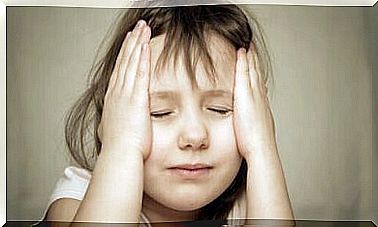The Feeling Of Morning Grief: Where Does It Come From?

Many people experience the feeling of morning pain as soon as they wake up in the morning, and more than at any other time during the day. Sometimes the feeling can be particularly severe and can even be a sign of severe depression. As the day goes on, you start to feel better. And at night you can instead experience pure euphoria.
This morning sorrow is also called morning depression or a daily mood variation. It is a very specific feeling, and it differs from other types of depression. Its most important characteristic is that it only appears during the first hours of the day.
In some cases, morning sickness is not directly related to depression but a consequence of other causes. At the same time, in other cases, it can be more than just a passing feeling of sadness in the morning and rather form part of a more serious illness.

Where does the feeling of morning grief come from?
According to what science has found, morning care in principle depends on at least one of three factors: depression, poor sleep or consumption of alcoholic beverages.
In the case of the first, morning sorrow or morning depression is when the symptoms of depression are stronger at the beginning of the day, just after waking up. One can feel uninterested, unmotivated and emotionally empty, and these feelings do not go away. However, as the day goes on, these symptoms may become less intense, although they may not go away completely.
Another reason you may feel morning sickness is due to a poor night’s sleep. You may have slept a lot, but not enough to help you recover from the day before. Your bedroom may not be adapted for a good night’s sleep, or you may have health problems that do not allow you to sleep properly. Either way, it makes you feel awful in the morning.
Finally, the feeling of sadness can also occur when you have drunk alcohol the night before you fell asleep. At first, alcohol may have a calming effect on you, but later it will affect your sleep cycle and interrupt it during the night. In addition, alcohol also affects the nervous system negatively, and it is these effects you feel the following morning. Long-term alcohol consumption can also lead to depression in itself.
Morning depression
Of all the different causes of morning sickness, it is the most complex as it is due to depression. This is a condition that requires professional attention as it may be a sign of a disorder or the onset of one. The main symptoms of morning depression are the following:
- Difficulty breathing or getting up from bed. Your eyelids may feel heavy and your body seems unable to move.
- Problems falling asleep or waking up several times during the night. This may be a sign that your body is producing more cortisol at night, which means more anxiety and trouble getting to rest.
- Hypersomnia. Some people feel the need to sleep more than normal, for no apparent reason. This can be a symptom of depression, although it may not always be the case.
- Irregular eating habits. Eating too much or too little, and especially eating at night, can be a sign that your mood is not as it should be.
- Lack of concentration. You may have difficulty concentrating on your daily tasks and trying to do too many things at once, or you may have difficulty completing what you have started, even simple tasks.
- Irritability or a feeling of frustration. These emotions are more intense in the morning but they can remain active throughout the day, although they are likely to decrease in intensity.
- Loss of interest in the things you normally like to do and a feeling of emptiness.

What can you do about the feeling of morning sickness?
If the feeling of morning sickness is very intense or frequent, it may be worth going to a doctor. One in five people who suffer from depression also have some form of sleep disorder. You can also find out if there is any other health condition that is affecting your rest.
Working at night, especially if it involves a lot of stress, can also cause grief in the morning. These conditions can cause you to overload your body and mind, and the result is an imbalance that can manifest itself as grief in the morning.
If something worries you or if you constantly experience feelings of disinterest and hopelessness, you may need psychological help. The sooner you get help, the better. In addition to these suggestions, it is also good to cultivate good sleeping habits, such as going to bed and waking up at the same time every day. These good habits can also help you get enough rest.









